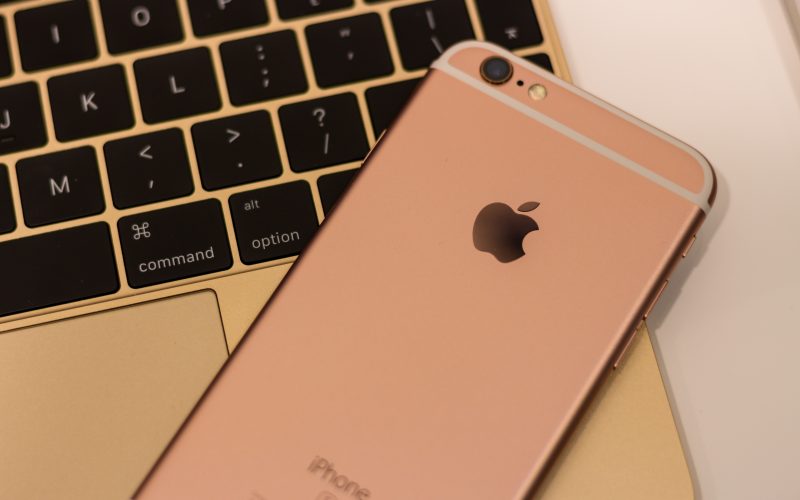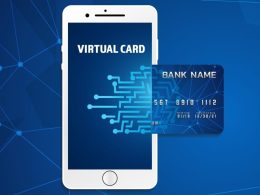Since its launch in 2014, Apple Pay has been changing the way we make payments. Gone are the days of fumbling around for cash or cards – now all you need is your iPhone or Apple Watch. But what impact will this technological advancement have on the banking industry? In this blog post, we’ll take a closer look at Apple Pay and explore how it’s reshaping the financial landscape. Get ready to discover why many believe that Apple Pay is a game changer for banking!
What is Apple Pay?
Apple Pay is a mobile payment and digital wallet service provided by Apple. It allows users to make payments using their iPhone, iPad or Apple Watch by simply holding the device near an NFC-enabled point of sale terminal.
The service uses biometric authentication – either Touch ID or Face ID – to ensure secure transactions. Users can add their credit and debit cards to the Wallet app on their iOS devices, allowing them to pay for goods and services without needing to carry physical cards with them.
One unique feature of Apple Pay is its ability to work with many different types of payment systems, including Mastercard, Visa and American Express. This means that users don’t need separate apps for each card they own; instead, they can use one centralized platform for all their purchases.
Apple Pay aims to simplify the payment process while also ensuring security and privacy for its users.
How does Apple Pay work?
Apple Pay is a mobile payment system that allows users to pay for goods and services using their iPhone, iPad or Apple Watch. The system uses near-field communication (NFC) technology to communicate with the merchant’s point-of-sale terminal.
To set up Apple Pay, users must add their credit cards or debit cards to the Wallet app on their device. Once added, they can use Apple Pay by holding their device close to the merchant’s NFC-enabled terminal and authenticating the transaction with Touch ID or Face ID.
Apple Pay also offers an additional layer of security by generating a unique one-time code for every transaction. This means that even if a hacker gains access to your payment information, they won’t be able to use it again in future transactions.
In addition to traditional payment methods, Apple Pay also supports person-to-person payments through its iMessage app. Users can send money directly from their bank account using this feature.
Apple Pay provides a fast and secure way for users to make payments both online and in stores without having to carry around physical credit cards.
What are the benefits of using Apple Pay?
Using Apple Pay offers a range of benefits that make it an attractive payment option for users. One of the biggest advantages is the convenience it provides. With just one touch, you can quickly and easily make purchases using your iPhone or Apple Watch without having to reach for your wallet or enter any card details.
Another benefit is the enhanced security features offered by Apple Pay. When you use this payment method, your card information is never actually stored on your device or shared with merchants. Instead, each transaction uses a unique code that ensures maximum protection against fraudsters.
Apple Pay also allows users to keep track of their spending with ease. You can view all transactions made through this service in real-time within the Wallet app on iOS devices, making budgeting and money management easier than ever before.
Furthermore, many retailers now accept payment via Apple Pay which means that you can leave your wallet at home more often and avoid carrying around multiple cards.
There are numerous benefits associated with using Apple Pay as a secure and convenient mobile payment solution.
What are the drawbacks of using Apple Pay?
While Apple Pay offers many benefits, there are also some drawbacks to consider before using it as your primary payment method. One potential drawback is that not all merchants accept Apple Pay yet, especially smaller businesses. This means you may still need to carry physical cards or cash for certain transactions.
Another concern with digital payments in general is security. While Apple Pay incorporates multiple layers of security measures such as biometric authentication and tokenization, no system is completely foolproof against hackers and fraudsters.
In addition, if you lose or replace your iPhone or other device that has your payment information stored on it, there could be a delay in accessing your funds again while new accounts and verification processes are established.
Some users may find the process of setting up and managing their payment methods through various devices and accounts confusing or time-consuming compared to simply swiping a card at checkout.
While these drawbacks should be considered before fully embracing Apple Pay for all transactions, many users still find the convenience and added security outweigh any potential downsides.
How will Apple Pay impact the banking industry?
Apple Pay has already created a significant impact on the banking industry and will continue to do so in the coming years. One of the most notable impacts is that it encourages banks to improve their mobile payment services by providing a more secure, convenient, and user-friendly platform for customers.
With Apple Pay’s popularity increasing day by day, financial institutions have realized that they need to incorporate this technology into their systems. Failing to provide such options could result in losing clients as people expect these features from their bank.
Furthermore, Apple Pay promotes digital transformation within the banking sector as it requires banks to upgrade their infrastructure and systems. This change will make them more efficient and dynamic while increasing profits with reduced costs since processing transactions digitally is cheaper than traditional means.
Moreover, Apple Pay also enhances customer engagement through personalized experiences like transaction notifications, promotions or exclusive offers when using Apple pay which helps build loyalty towards both the brand and bank.
Apple Pay is revolutionizing how we interact with banking services by making transactions easier, safer & faster whilst simultaneously pushing innovation within finance further forward.
Conclusion
Apple Pay has undoubtedly changed the way we make payments today. It has revolutionized the banking industry by making transactions faster, more secure and convenient for consumers all around the world.
With its easy-to-use interface and state-of-the-art security features, Apple Pay is becoming increasingly popular among users who value convenience and speed when it comes to managing their finances.
Although there are some drawbacks associated with using this payment method, such as limited merchant availability or compatibility issues with older devices, overall Apple Pay seems to be a game changer in the banking industry that will continue to shape our future payment habits.
While traditional payment methods still have a place in our day-to-day lives, it’s clear that digital payments are here to stay. And with innovative solutions like Apple Pay leading the way forward, we can expect a more seamless and efficient financial experience for years to come.












